Unit 2 The environment-- Welcome &reading课件
文档属性
| 名称 | Unit 2 The environment-- Welcome &reading课件 |  | |
| 格式 | zip | ||
| 文件大小 | 919.7KB | ||
| 资源类型 | 教案 | ||
| 版本资源 | 牛津译林版 | ||
| 科目 | 英语 | ||
| 更新时间 | 2014-08-12 22:45:29 | ||
图片预览

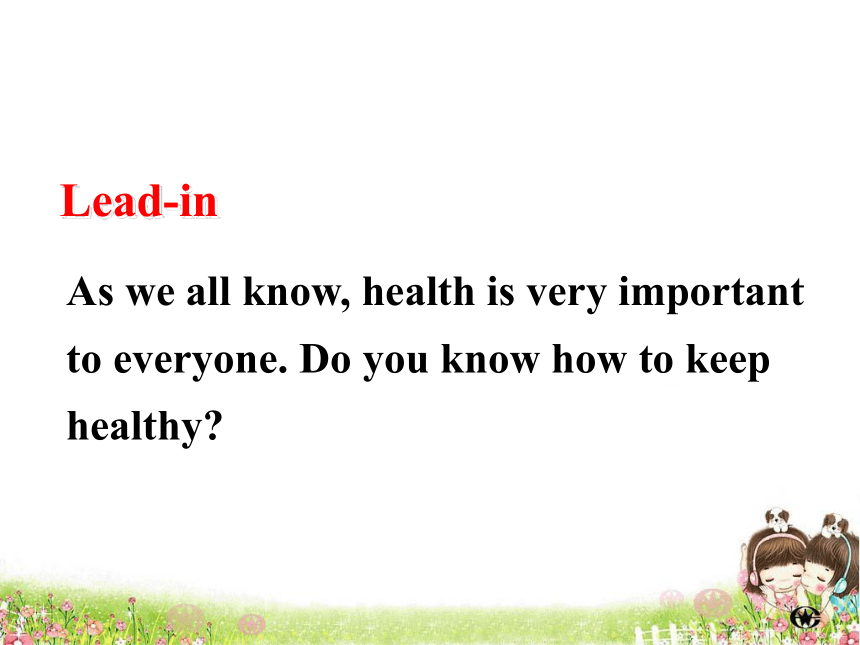



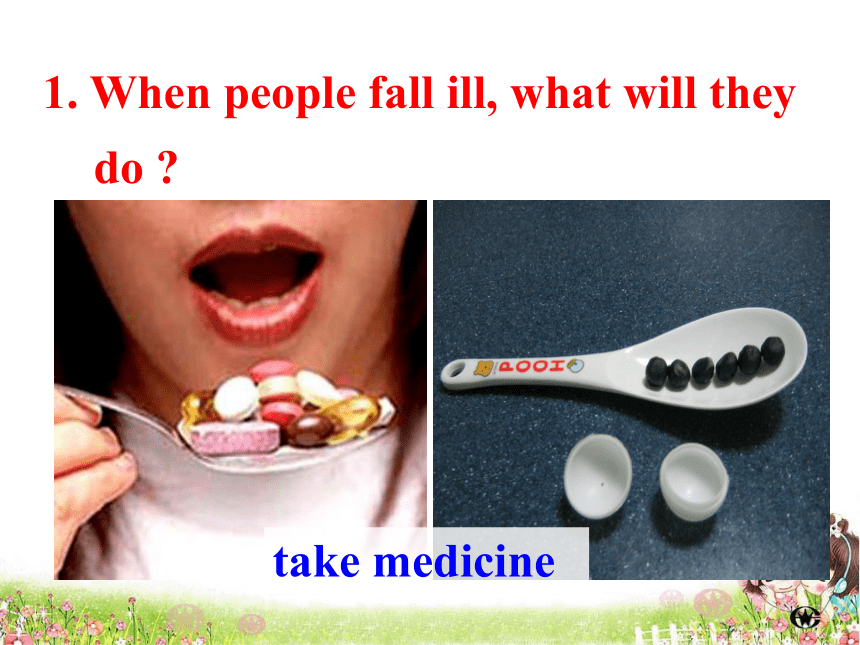
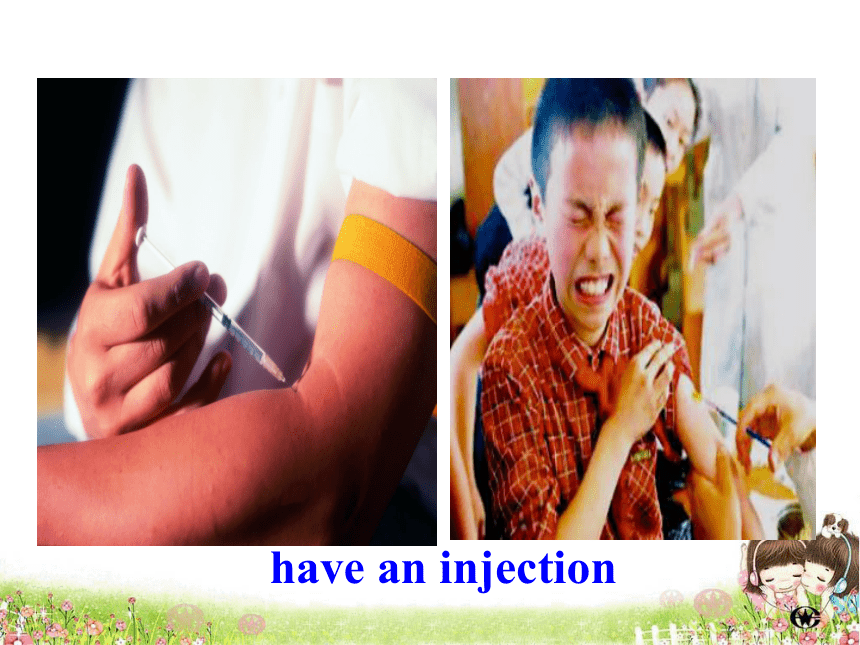
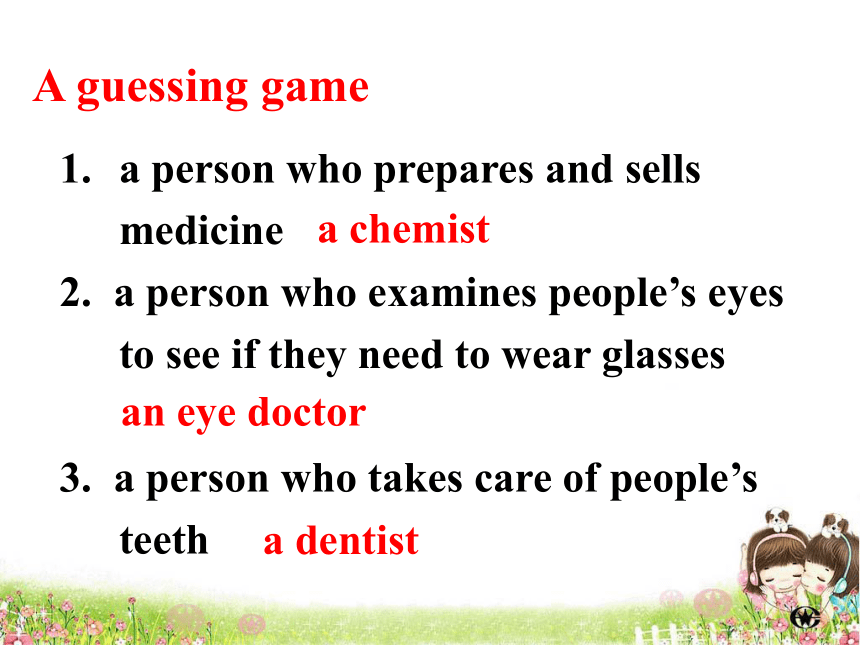
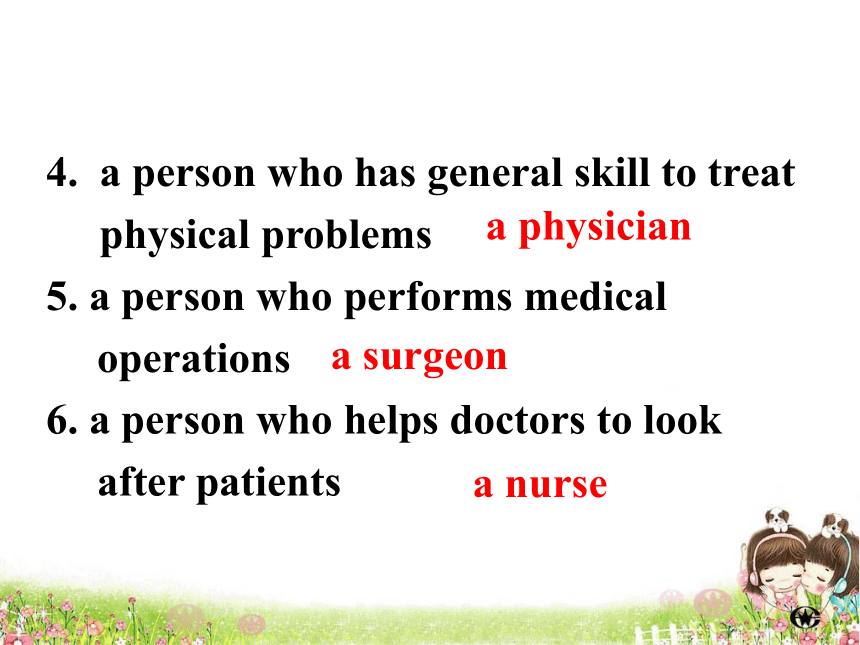
文档简介
课件25张PPT。Welcome to the unit As we all know, health is very important to everyone. Do you know how to keep healthy?Lead-inright foodregular exerciseenough sleep1. When people fall ill, what will they do ?take medicinehave an injectiona person who prepares and sells medicine
2. a person who examines people’s eyes to see if they need to wear glasses
3. a person who takes care of people’s teethA guessing gamea chemistan eye doctora dentist4. a person who has general skill to treat
physical problems
5. a person who performs medical operations
6. a person who helps doctors to look after patientsa physiciana surgeona nurseUnit 2 Fit for lifeReading
Two life-saving medicinesPeople may take medicines when they are ill. However, if they don’t take the right medicine in the right way, they may not get better and even get worse.lead-inDo you know what are they? aspirinpenicillinWhat are the two medicines mentioned in the article?
When was penicillin first discovered?
What award did Fleming, Florey and Chain share?1st readingIn 1928.The Nobel Prize in medicine.Aspirin and penicillin. Read the article again by yourselves and try to do C1 on page20.2nd readingKeys:
1. In 1897.
2. Nearly 3,500 years ago.3. It can also help reduce the risk of heart attacks by thinning blood, prevent strokes, reduce the risk of some cancers, increase the length of people’s lives and help with diabetes.4. In a mould that killed bacteria.
5. It might be used to treat illnesses and other illnesses caused by bacteria.6. First he was unable to find a procedure to make penicillin pure enough to work as a medicine. Second, it was difficult to produce penicillin in the ample quantities needed to be effective.Development of Aspirin:
In 1900:
In 1971:
In 1977:
In 2003:3rd readingDevelopment of Aspirin:
In 1900: sold in shops in the form of tablets
In 1971: proved to reduce the risk of heart attacks
In 1977: used to prevent strokes
In 2003: used to reduce blood sugar levelsDevelopment of Penicillin:
In 1928:
In 1940:
In 1944:Development of Penicillin:
In 1928: discovered by Alexander Fleming
In 1940: made and tested in large quantities
In 1944: mass production begancomprehensionEffects of aspirinReducing fever
Helping stop pain
Reducing the risk of heart attacks
Preventing strokes
Reducing the risk of some cancer
Increasing the length of people’s lives
Helping with diabetesEffects of penicillinTreating illnesses caused by bacteria
2. a person who examines people’s eyes to see if they need to wear glasses
3. a person who takes care of people’s teethA guessing gamea chemistan eye doctora dentist4. a person who has general skill to treat
physical problems
5. a person who performs medical operations
6. a person who helps doctors to look after patientsa physiciana surgeona nurseUnit 2 Fit for lifeReading
Two life-saving medicinesPeople may take medicines when they are ill. However, if they don’t take the right medicine in the right way, they may not get better and even get worse.lead-inDo you know what are they? aspirinpenicillinWhat are the two medicines mentioned in the article?
When was penicillin first discovered?
What award did Fleming, Florey and Chain share?1st readingIn 1928.The Nobel Prize in medicine.Aspirin and penicillin. Read the article again by yourselves and try to do C1 on page20.2nd readingKeys:
1. In 1897.
2. Nearly 3,500 years ago.3. It can also help reduce the risk of heart attacks by thinning blood, prevent strokes, reduce the risk of some cancers, increase the length of people’s lives and help with diabetes.4. In a mould that killed bacteria.
5. It might be used to treat illnesses and other illnesses caused by bacteria.6. First he was unable to find a procedure to make penicillin pure enough to work as a medicine. Second, it was difficult to produce penicillin in the ample quantities needed to be effective.Development of Aspirin:
In 1900:
In 1971:
In 1977:
In 2003:3rd readingDevelopment of Aspirin:
In 1900: sold in shops in the form of tablets
In 1971: proved to reduce the risk of heart attacks
In 1977: used to prevent strokes
In 2003: used to reduce blood sugar levelsDevelopment of Penicillin:
In 1928:
In 1940:
In 1944:Development of Penicillin:
In 1928: discovered by Alexander Fleming
In 1940: made and tested in large quantities
In 1944: mass production begancomprehensionEffects of aspirinReducing fever
Helping stop pain
Reducing the risk of heart attacks
Preventing strokes
Reducing the risk of some cancer
Increasing the length of people’s lives
Helping with diabetesEffects of penicillinTreating illnesses caused by bacteria
